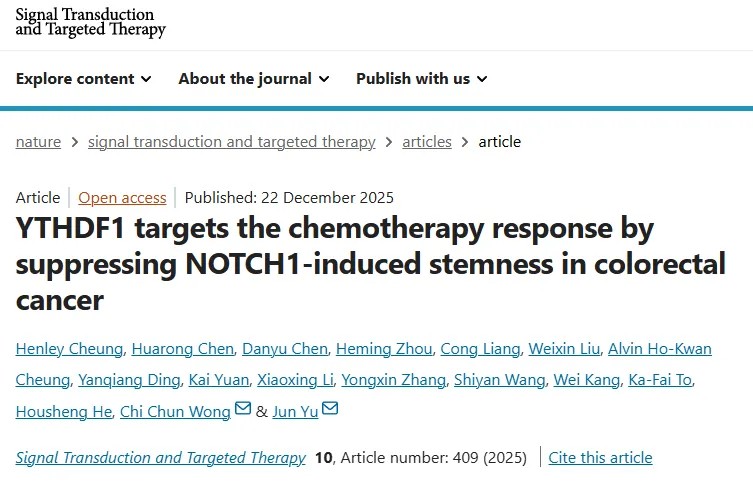Gut:摄入维生素B12有助于治疗丙型肝炎
| 导读 | 根据一项于2012年7月17日在线发表在<em>Gut</em>期刊上的一项研究,加入维生素B12到标准丙型肝炎病毒(hepatitis C virus, HCV)治疗之中能够显著性地增强机体抵抗这种病毒感染的能力。这项研究还表明该效果在感染HCV之后很难被有效治疗的病人身上特别强烈。
十年前的实验研究提示着维生素B12可能在抑制HCV中发挥着作用。肝脏是机体中维生素... |
根据一项于2012年7月17日在线发表在<em>Gut</em>期刊上的一项研究,加入维生素B12到标准丙型肝炎病毒(hepatitis C virus, HCV)治疗之中能够显著性地增强机体抵抗这种病毒感染的能力。这项研究还表明该效果在感染HCV之后很难被有效治疗的病人身上特别强烈。
十年前的实验研究提示着维生素B12可能在抑制HCV中发挥着作用。肝脏是机体中维生素B12的主要储存中心,但是这种能力因为HCV感染直接影响这种器官而受到损伤。因此研究人员想看看加入维生素B12到标准HCV治疗方法中是否会产生显著性的影响。
<!--more-->
94名遭受HCV感染的病人经过随机地分配后接受标准HCV治疗或加入维生素B12(每四周5000ug)的标准HCV治疗,其中若是2-型HCV(HCV-2)和3-型HCV(HCV-3),则接受为期24周的治疗,若是1-型HCV(HCV-1),则接受为期48周的治疗。
机体清除HCV病毒的能力在治疗4周(快速病毒应答)后、12周(完全早期病毒应答)后、治疗结束时和停止治疗24周(持续病毒应答)之后分别进行评估。
在治疗4周后,这两中治疗方法没有差别,但是在其他时间点,特别是在停止治疗24周后,则存在显著性的差别。
这些治疗效果在携带HCV-1的病人身上更加显著,其中HIV-1感染特别难以治疗,感染开始时便存在高病毒载量。
总之,这些研究发现表明,加入维生素B12到标准HCV治疗当中,能够持续病毒应答率(rate of sustained viral response)增加了34%。研究人员说,标准HCV治疗加上维生素B12是一种安全和便宜的替代性治疗选择,尤其对携带HCV-1的病人而言。
<img src="http://www.bioon.com/biology/UploadFiles/201207/2012071822133115.gif" alt="" width="113" height="149" border="0" />
<div id="ztload">
<div>
<div>
<a title="" href="http://dx.doi.org/10.1136/gutjnl-2012-302344" target="_blank">doi:10.1136/gutjnl-2012-302344</a>
PMC:
PMID:
</div>
<div>
<br/><strong>Vitamin B12 supplementation improves rates of sustained viral response in patients chronically infected with hepatitis C virus</strong><br/>
Alba Rocco1, Debora Compare1, Pietro Coccoli1, Ciro Esposito2, Antimo Di Spirito2, Antonio Barbato3, Pasquale Strazzullo3, Gerardo Nardone1
Background In vitro, vitamin B12 acts as a natural inhibitor of hepatitis C virus (HCV) replication. Objective To assess the effect of vitamin B12 on virological response in patients with chronic HCV hepatitis naïve to antiviral therapy. Methods Ninety-four patients with chronic HCV hepatitis were randomly assigned to receive pegylated interferon α plus ribavirin (standard-of-care; SOC) or SOC plus vitamin B12 (SOC+B12). Viral response—namely, undetectable serum HCV-RNA, was evaluated 4 weeks after starting treatment (rapid viral response), 12 weeks after starting treatment (complete early viral response) and 24 or 48 weeks after starting treatment (end-of-treatment viral response) and 24 weeks after completing treatment (sustained viral response (SVR)). Genotyping for the interleukin (IL)-28B polymorphism was performed a posteriori in a subset (42/64) of HCV genotype 1 carriers. Results Overall, rapid viral response did not differ between the two groups, whereas the rates of complete early viral response (p=0.03), end-of-treatment viral response (p=0.03) and SVR (p=0.001) were significantly higher in SOC+B12 patients than in SOC patients. In SOC+B12 patients, the SVR rate was also significantly higher in carriers of a difficult-to-treat genotype (p=0.002) and in patients with a high baseline viral load (p=0.002). Distribution of genotype IL-28B did not differ between the two groups. At multivariate analysis, only easy-to-treat HCV genotypes (OR=9.00; 95% CI 2.5 to 37.5; p=0.001) and vitamin B12 supplementation (OR=6.9; 95% CI 2.0 to 23.6; p=0.002) were independently associated with SVR. Conclusion Vitamin B12 supplementation significantly improves SVR rates in HCV-infected patients naïve to antiviral therapy.
<br/>来源:生物谷
</div>
</div>
</div>
十年前的实验研究提示着维生素B12可能在抑制HCV中发挥着作用。肝脏是机体中维生素B12的主要储存中心,但是这种能力因为HCV感染直接影响这种器官而受到损伤。因此研究人员想看看加入维生素B12到标准HCV治疗方法中是否会产生显著性的影响。
<!--more-->
94名遭受HCV感染的病人经过随机地分配后接受标准HCV治疗或加入维生素B12(每四周5000ug)的标准HCV治疗,其中若是2-型HCV(HCV-2)和3-型HCV(HCV-3),则接受为期24周的治疗,若是1-型HCV(HCV-1),则接受为期48周的治疗。
机体清除HCV病毒的能力在治疗4周(快速病毒应答)后、12周(完全早期病毒应答)后、治疗结束时和停止治疗24周(持续病毒应答)之后分别进行评估。
在治疗4周后,这两中治疗方法没有差别,但是在其他时间点,特别是在停止治疗24周后,则存在显著性的差别。
这些治疗效果在携带HCV-1的病人身上更加显著,其中HIV-1感染特别难以治疗,感染开始时便存在高病毒载量。
总之,这些研究发现表明,加入维生素B12到标准HCV治疗当中,能够持续病毒应答率(rate of sustained viral response)增加了34%。研究人员说,标准HCV治疗加上维生素B12是一种安全和便宜的替代性治疗选择,尤其对携带HCV-1的病人而言。
<img src="http://www.bioon.com/biology/UploadFiles/201207/2012071822133115.gif" alt="" width="113" height="149" border="0" />
<div id="ztload">
<div>
<div>
<a title="" href="http://dx.doi.org/10.1136/gutjnl-2012-302344" target="_blank">doi:10.1136/gutjnl-2012-302344</a>
PMC:
PMID:
</div>
<div>
<br/><strong>Vitamin B12 supplementation improves rates of sustained viral response in patients chronically infected with hepatitis C virus</strong><br/>
Alba Rocco1, Debora Compare1, Pietro Coccoli1, Ciro Esposito2, Antimo Di Spirito2, Antonio Barbato3, Pasquale Strazzullo3, Gerardo Nardone1
Background In vitro, vitamin B12 acts as a natural inhibitor of hepatitis C virus (HCV) replication. Objective To assess the effect of vitamin B12 on virological response in patients with chronic HCV hepatitis naïve to antiviral therapy. Methods Ninety-four patients with chronic HCV hepatitis were randomly assigned to receive pegylated interferon α plus ribavirin (standard-of-care; SOC) or SOC plus vitamin B12 (SOC+B12). Viral response—namely, undetectable serum HCV-RNA, was evaluated 4 weeks after starting treatment (rapid viral response), 12 weeks after starting treatment (complete early viral response) and 24 or 48 weeks after starting treatment (end-of-treatment viral response) and 24 weeks after completing treatment (sustained viral response (SVR)). Genotyping for the interleukin (IL)-28B polymorphism was performed a posteriori in a subset (42/64) of HCV genotype 1 carriers. Results Overall, rapid viral response did not differ between the two groups, whereas the rates of complete early viral response (p=0.03), end-of-treatment viral response (p=0.03) and SVR (p=0.001) were significantly higher in SOC+B12 patients than in SOC patients. In SOC+B12 patients, the SVR rate was also significantly higher in carriers of a difficult-to-treat genotype (p=0.002) and in patients with a high baseline viral load (p=0.002). Distribution of genotype IL-28B did not differ between the two groups. At multivariate analysis, only easy-to-treat HCV genotypes (OR=9.00; 95% CI 2.5 to 37.5; p=0.001) and vitamin B12 supplementation (OR=6.9; 95% CI 2.0 to 23.6; p=0.002) were independently associated with SVR. Conclusion Vitamin B12 supplementation significantly improves SVR rates in HCV-infected patients naïve to antiviral therapy.
<br/>来源:生物谷
</div>
</div>
</div>
 腾讯登录
腾讯登录
还没有人评论,赶快抢个沙发